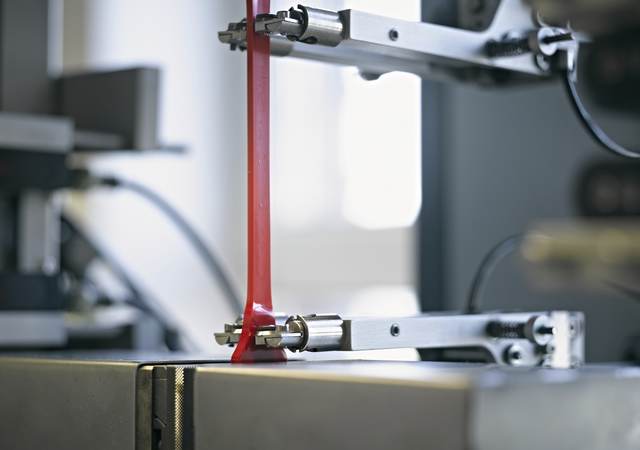The plastics industry is evolving from a linear to a circular economy. Product design in a circular economy emphasizes resource reduction, extended use, reuse and recycling while meeting performance, safety and health requirements.
Manufacturers who use recycled material need to be confident in the quality and/or source of a recycled (raw) material so they can be sure it meets the requirements for their desired application. To facilitate the trade of recycled plastics, a consortium in Germany has prepared a DIN specification: DIN SPEC 91446, Classification of Recycled Plastics by Data Quality Levels for Use and (Digital) Trading.
This DIN SPEC classifies a recycled material based on the depth of data available for that material. The DIN SPEC includes four different classes — data quality level (DQL) 1 through 4. With each increasing level, the material supplier must offer more information and property data about the recycled material. A recycled material qualifies as DQL4 when a full description and analysis of the recycled material is available.
To comply with this DIN SPEC, a material supplier must provide a product datasheet. The datasheet must include the recycled material’s information, such as the material type, recycled content, packaging, and properties (e.g., viscosity, ash content and residual humidity).
UL Solutions' offering
UL Solutions can help you test the mandatory and optional properties specified in the DIN SPEC 91446, such as viscosity, ash content, density, softening tests (HDT/Vicat) and material identification (FT-IR, DSC).
You can secure your test reports in English and German.
Testing beyond DIN SPEC 91446
Users can adjust the scope of testing to their needs/applications, e.g., flammability testing for safety applications, odor/emission measurements for automotive applications or mechanical tests (tensile properties, impact resistance).
Required information per DIN SPEC 91446
The material supplier must provide property data, as well as information on the recycled material. Again, the amount of information necessary depends on the data quality level. The minimum information needed for all DQL levels includes material type, recycled content and packaging.
The following provides an overview of the properties required for each DQL level. Review the DIN SPEC 91446 for further information on each DQL level.
| Property | Standard | DQL Level |
| Viscosity (MVR/MFR) | ISO 1133 | 2, 3, 4 |
| Viscosity (viscosity number) | ISO 307, ISO 1628 series | 2, 3, 4 |
| Ash content | ISO 3451 series, ISO 1172 | 2, 3, 4 |
| Residual humidity | ISO 15512 | 2, 3, 4 |
| Density | ISO 1183 series | 3, 4 |
| Bulk density | ISO 60 | 3, 4 |
| Heat deflection temperature or Vicat softening temperature | ISO 75 series, ISO 306 | 4 |
| Particle size distribution | DIN 53477 | 4 |
| Material identification (FT-IR or DSC) | FT-IR, DSC (ISO 11357-1;-2;-3) | 4 |
Performance properties not listed here are optional. For our test capabilities, please check these pages or contact us.
If you would like to review the DIN SPEC 91446 in detail, it is available as a complimentary download from www.beuth.de. The DIN SPEC is also available in English.
Get connected with our sales team
Thanks for your interest in our products and services. Let's collect some information so we can connect you with the right person.








